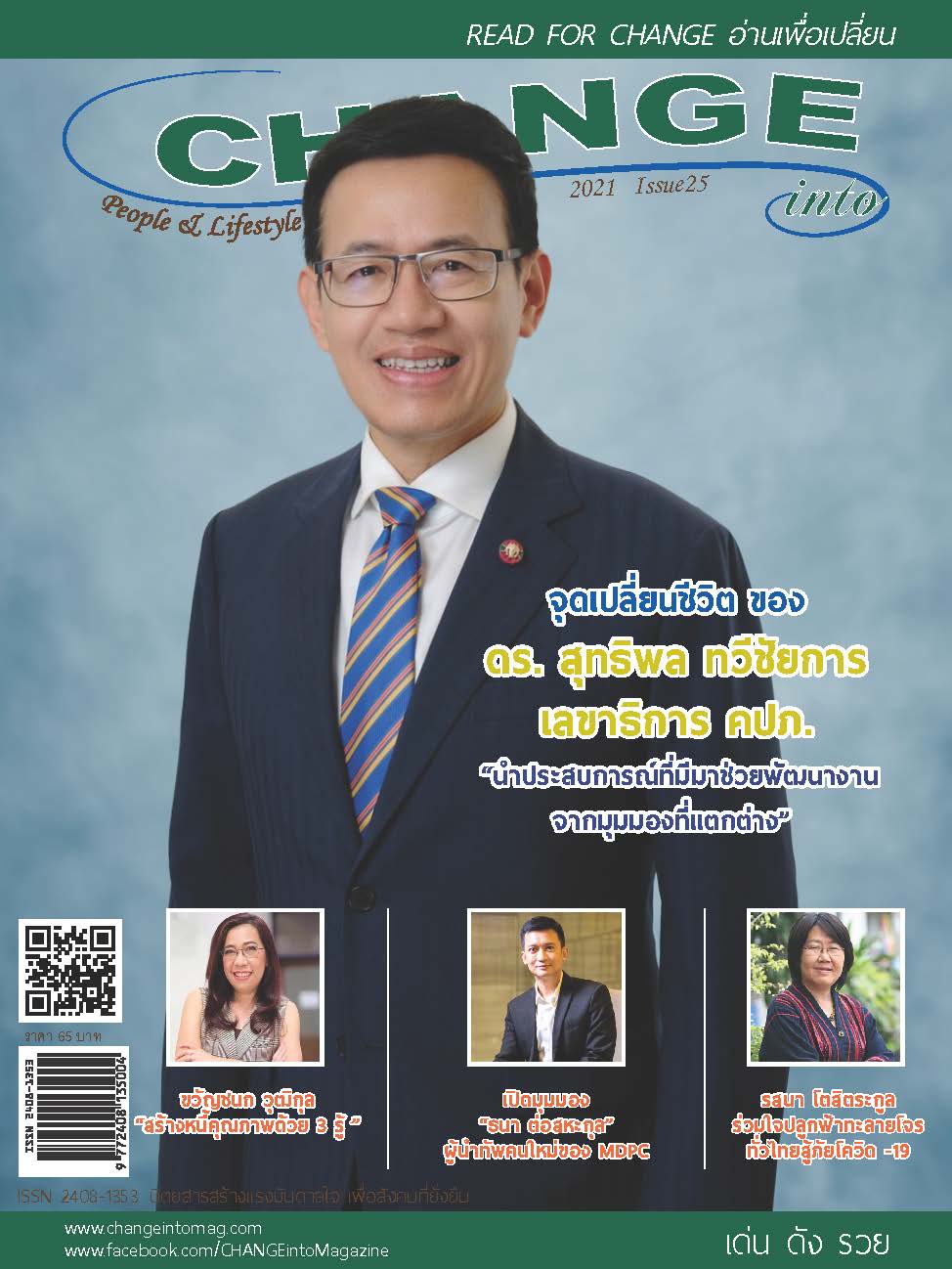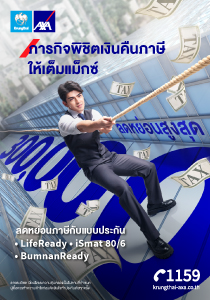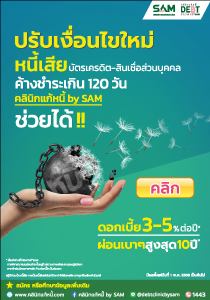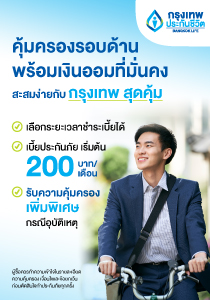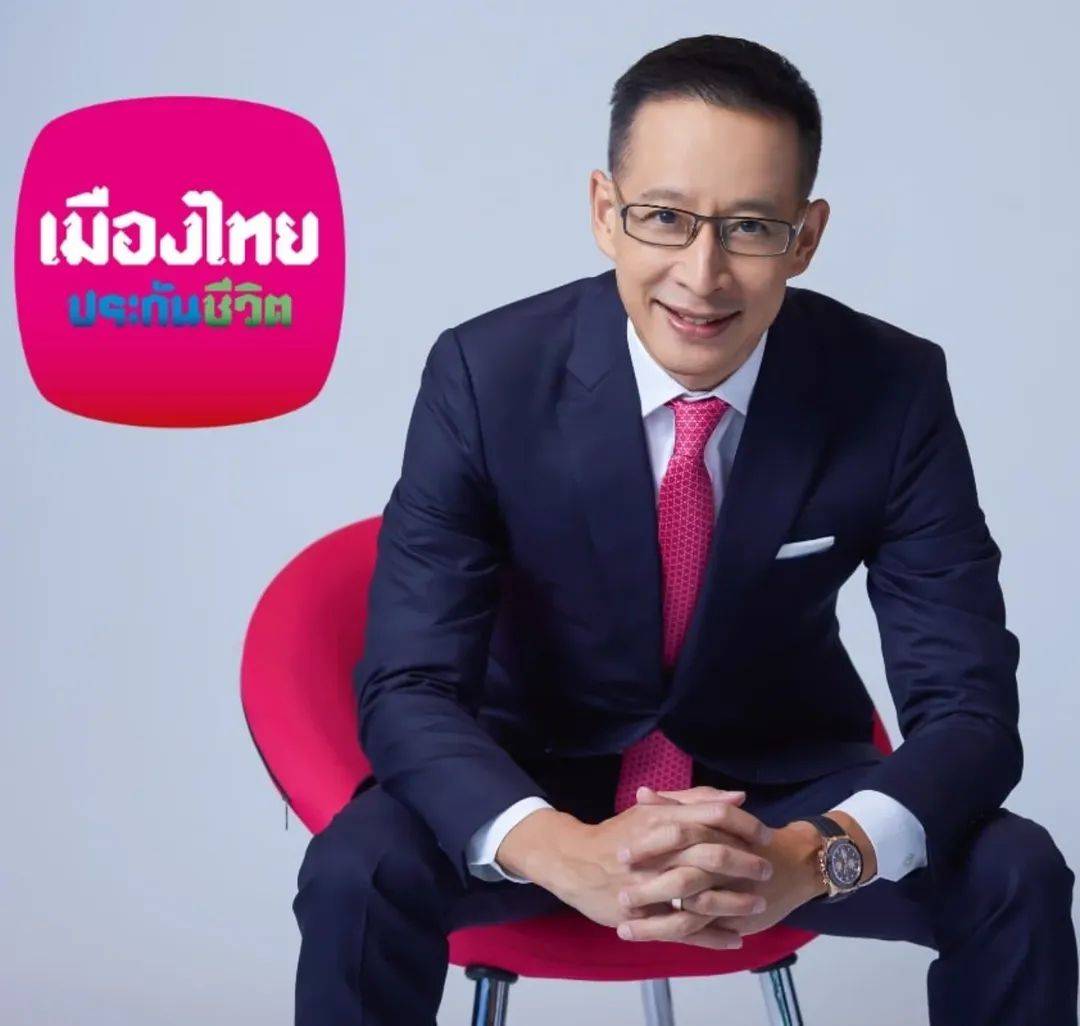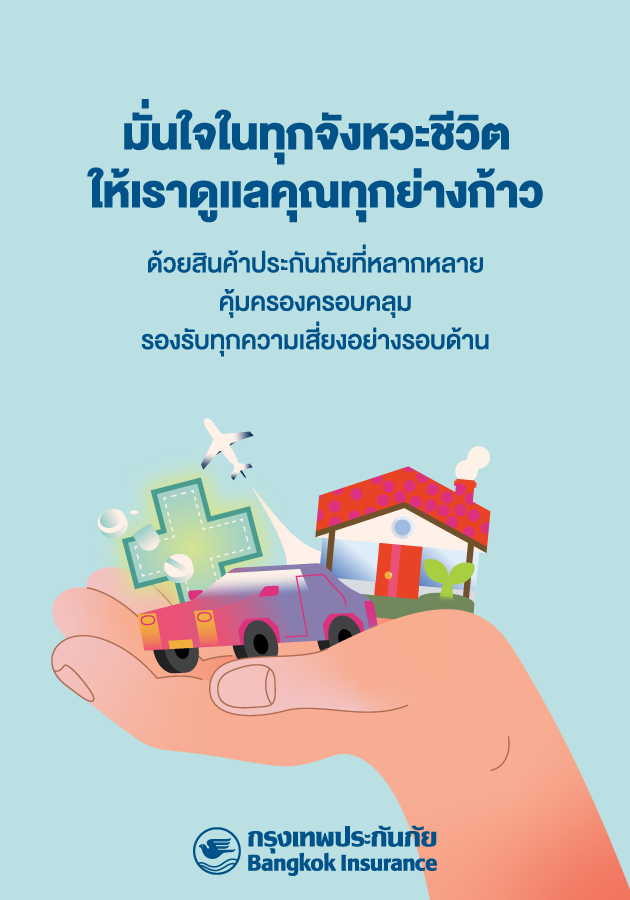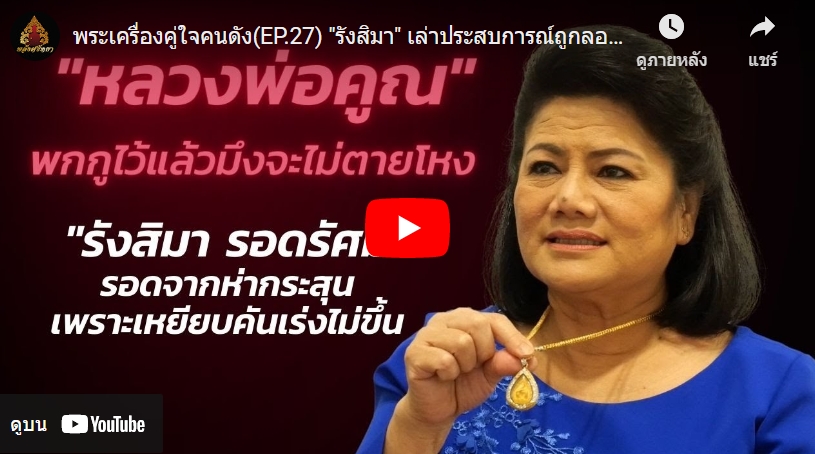เคทีซีหนุนว่าที่บัณฑิตจุฬาฯ ออมก่อนใช้ สร้างวินัยการเงิน เข้าใจความเสี่ยง
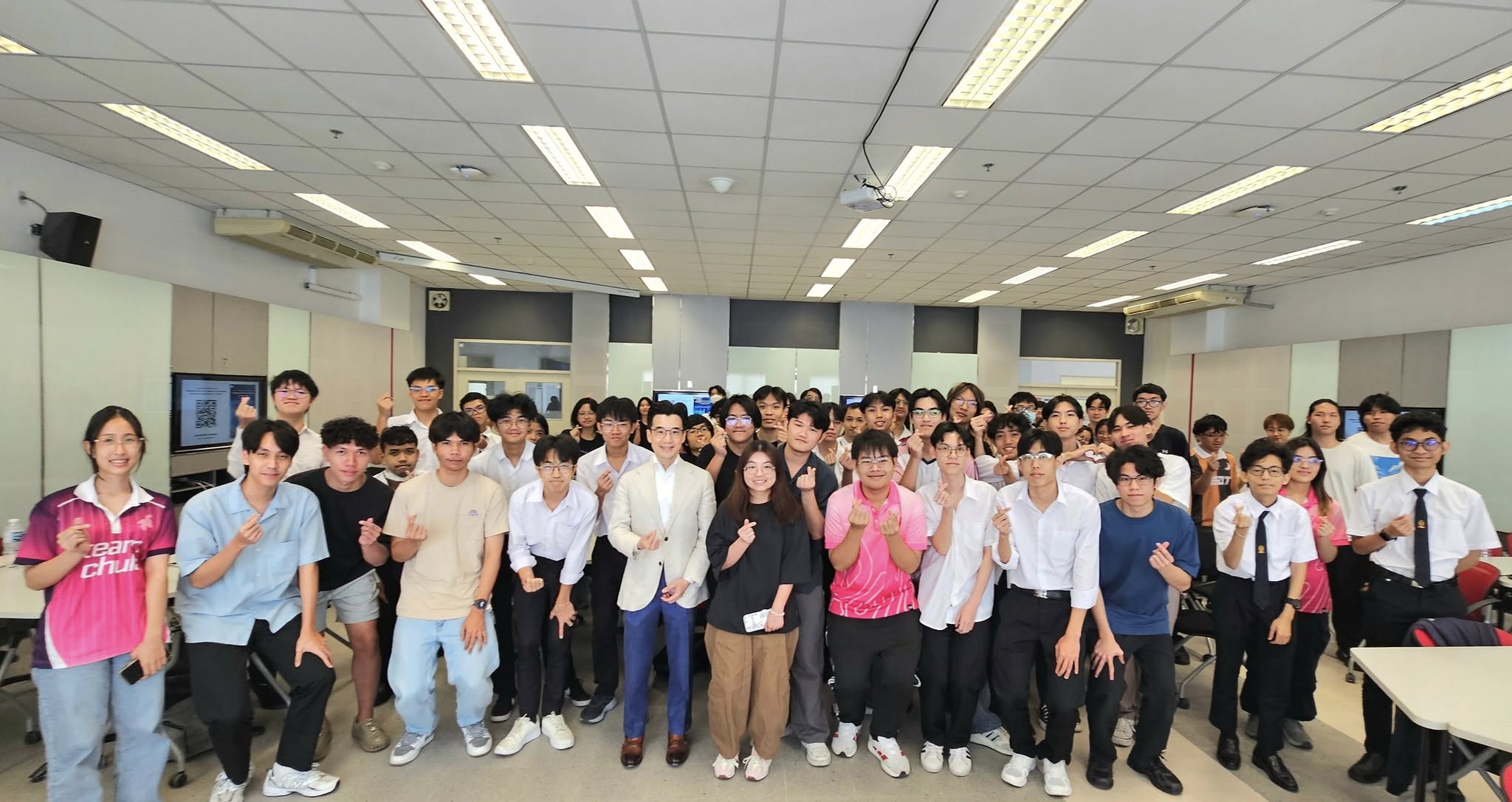
เคทีซีหนุนว่าที่บัณฑิตจุฬาฯ ออมก่อนใช้ สร้างวินัยการเงิน เข้าใจความเสี่ยง
เคทีซีเดินหน้าโครงการส่งต่อความรู้ให้กับนิสิต นักศึกษา ที่กำลังจะเริ่มต้นทำงานมีรายได้ (First Jobber) จัดคลาสพิเศษยกระดับความเข้าใจและมุ่งสร้างวินัยทางการเงินให้แน่นในหัวข้อ “การบริหารการเงินและการลงทุนส่วนบุคคล” สำหรับนิสิตปี 4 จุฬาลงกรณ์มหาวิทยาลัย
นายอภิเชษฐ์ เกียรติวรคุณ CFA ผู้อำนวยการ-การเงิน “เคทีซี” หรือ บริษัท บัตรกรุงไทย จำกัด (มหาชน) กล่าวว่า “ยินดีที่ได้เป็นตัวแทนเคทีซีมาส่งต่อกรอบคิดทางการเงินให้กับน้องๆ นิสิตจุฬาลงกรณ์มหาวิทยาลัย คณะวิศวกรรมศาสตร์ สาขาวิศวกรรมคอมพิวเตอร์และเทคโนโลยีดิจิทัล ที่กำลังจะเรียนจบและเตรียมพร้อมไปเริ่มต้นทำงาน มีรายได้เป็นของตนเอง จะมีการบริหารการเงินอย่างไรให้งอกเงยและเกิดประโยชน์ เนื้อหาที่น่าสนใจในคลาสวันนี้จึงเริ่มจากแกนคิดว่า “ไม่ใช่หาได้เท่าไร แต่บริหารอย่างไร” พร้อมกรณีศึกษาของ Mike Tyson เพื่อชี้ให้เห็นผลของวินัย–การตัดสินใจต่อความมั่นคงทางการเงินในระยะยาว ต่อด้วยการตั้ง “เป้าหมายการเงิน 3 ระยะ” (สั้น/กลาง/ยาว) เพื่อแปลงความตั้งใจเป็นแผนปฏิบัติที่ตรวจสอบได้ กรอบปฏิบัติย้ำวินัย ออมก่อนใช้ และกฎ 50/30/20 ค่าใช้จ่ายที่จำเป็น / ค่าใช้จ่ายเพื่อความสุข / เงินออมและการลงทุน เพื่อควบคุมงบประมาณ พร้อมประเด็นจิตวิทยา Marshmallow Test ที่เตือนภัย “ความอยากระยะสั้น” ซึ่งอาจทำให้ตัดสินใจผิดพลาดได้ง่ายโดยเฉพาะวัยรุ่นกลุ่มเจน Z
ในส่วนของการลงทุน ได้มีกิจกรรมเพื่ออธิบายความสัมพันธ์ระหว่าง ความเสี่ยง–ผลตอบแทน จากการลงทุนในสินทรัพย์ต่างๆ ตั้งแต่เงินสด / ตลาดเงิน / ตราสารหนี้ / ทอง / กองทุน / อสังหาริมทรัพย์ / หุ้น / คริปโต / ของสะสม ฯลฯ และย้ำว่า ไม่มีอะไรไร้ความเสี่ยง เงินสดก็พ่ายเงินเฟ้อได้ จากนั้นลงหลัก กระจายความเสี่ยง และการรีบาลานซ์พอร์ตลงทุน เพื่อลดการกระจุกตัว รักษาสัดส่วน และเก็บเกี่ยววัฏจักรตลาดอย่างมีวินัย ปิดท้ายด้วยชุด “นิสัยทางการเงิน” ตามแนว Atomic Habits เช่น การออม-ลงทุนแบบอัตโนมัติ 2-Minute Rule, Habit Stacking, และ Goldilocks Rule เพื่อให้ลงมือทำได้จริงตั้งแต่วันนี้
เชื่อว่าผลลัพธ์ของการวางแผนการลงทุนและวินัยการเงินที่ดี จะสร้างความต่างอย่างมีนัยสำคัญในระยะยาว เราต้องการสร้างกรอบความคิดทางการเงินที่พิสูจน์ได้ในชีวิตจริง ตั้งเป้าหมายที่วัดผลได้ ออมก่อนใช้ รู้จักความเสี่ยง และรักษาวินัยเพื่อให้ว่าที่บัณฑิตได้ใช้เป็นแนวทางในการตัดสินใจทางการเงิน ด้วยการพิจารณาข้อมูลที่เกี่ยวข้องเป็นสำคัญ มากกว่าการพิจารณาจากอารมณ์ความต้องการ ซึ่งอาจเกิดความเสี่ยงได้มากกว่า
บรรยากาศช่วงถาม–ตอบ น้องๆ ให้ความสนใจการประยุกต์ความรู้สายวิศวะต่อยอดสู่เส้นทางอาชีพด้านการเงิน การวิเคราะห์ข้อมูล และการพัฒนาแอปพลิเคชันด้านการลงทุน เพื่อช่วยวางแผนและกำกับวินัยการออม–ลงทุนอย่างเป็นระบบ นอกจากนี้ นิสิตบางส่วนยังอยากทราบมุมมองเชิงลึกของ “โมเดลธุรกิจ” และอนาคตของธุรกิจดั้งเดิมในไทย—ตั้งแต่ค้าปลีก สื่อดั้งเดิมไปจนถึงบริการการเงินแบบเก่า ท่ามกลางความเปลี่ยนแปลงทางเศรษฐกิจและเทคโนโลยีที่รวดเร็ว รวมทั้งแนวทางการปรับตัวของธุรกิจอย่างยั่งยืน สะท้อนว่านิสิตไม่ได้สนใจเพียงการเงินส่วนบุคคล แต่ยังให้ความสำคัญกับพลวัตเศรษฐกิจและการแข่งขันทางธุรกิจระยะยาว ซึ่งแสดงถึงศักยภาพและความมุ่งมั่นของคนรุ่นใหม่ที่จะขับเคลื่อนนวัตกรรม พัฒนาโมเดลธุรกิจใหม่ และเสริมความแข็งแกร่งให้เศรษฐกิจไทยก้าวทันโลกในอนาคต”
KTC Champions Financial Immunity for Soon-to-Be Chula Graduates: Save First, Spend Wisely
KTC continues its commitment to empowering first jobbers by hosting a special class on "Personal Financial Management and Investment" for fourth-year students at Chulalongkorn University. The initiative aims to build financial resilience and discipline among students as they prepare to enter the workforce.
Mr. Apichet Kiatworakun, CFA, Financial Director at Krungthai Card Public Company Limited (KTC), stated, “It was an honored to represent KTC in sharing financial perspectives with students from Chulalongkorn University’s Computer Engineering and Digital Technology program. As these students prepare to graduate and begin managing their own incomes, our session focused on building long-term financial resilience through practical tools and behavioral insights. We emphasized that financial success is not about how much you earn, but how well you manage it. Using real-life examples such as Mike Tyson’s financial journey, we explored the impact of discipline and decision-making on financial security. Students were introduced to the 50/30/20 budgeting rule and the concept of setting financial goals across three horizons—short, medium, and long term—turning intentions into measurable actions. We also discussed the psychological aspects of financial behavior, including the Marshmallow Test, to highlight how short-term temptations can undermine long-term planning, especially among Gen Z.”
In the investment segment, students explored the relationship between risk and return across various asset classes—including cash, money, markets, bonds, mutualfunds, real estate, equities, cryptocurrencies and collectibles—reinforcing the principle that no asset is entirely risk-free, not even cash due to inflation.
The session emphasized the importance of diversification and portfolio rebalancing to avoid overconcentration and maintain strategic allocation through market cycles. Practical financial habits were also introduced, inspired by the concept of Atomic Habits, such as the 2-Minute Rule for automatic saving and investing, Habit Stacking, and the Goldilocks Rule, providing students with simple, actionable steps to build long-term financial discipline.”
Sound investment planning and financial discipline can make a lasting impact over time. KTC’s objective is to cultivate a financial mindset that translates into real-life decision-making—by setting measurable goals, saving before spending, understanding risks, and maintaining discipline. These principles offer a practical framework for making informed financial choices, rather than reacting emotionally, which often leads to greater risk. The Q&A session was lively, with many engineering students expressing interest in applying their technical skills to finance, exploring careers in financial analysis and data science, and even developing investment applications to help manage savings and portfolios systematically.
Students were eager to explore how engineering skills could be applied to finance, data analytics, and investment tech—tools that promote disciplined financial habits. Their curiosity extended to business models and the future of legacy industries, reflecting a sharp awareness of economic shifts and a drive to shape sustainable innovation for Thailand’s future.”









